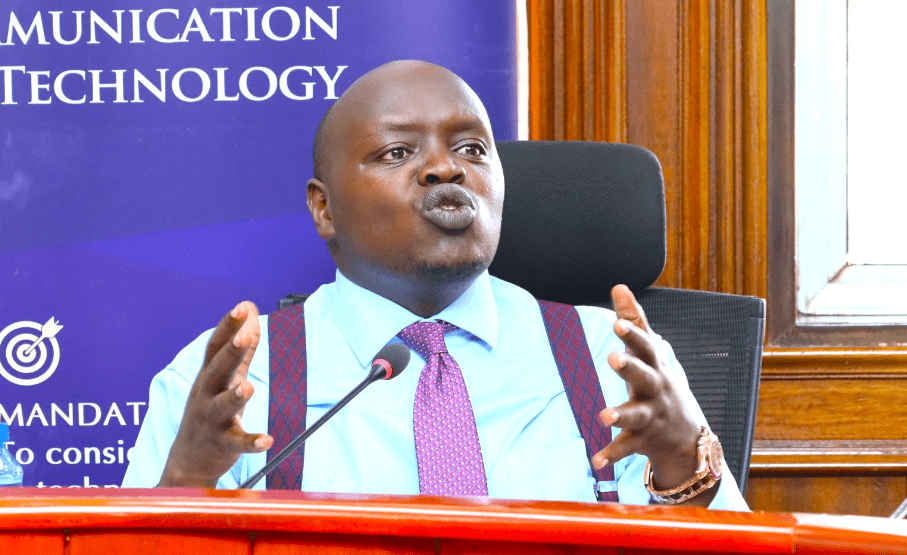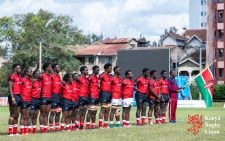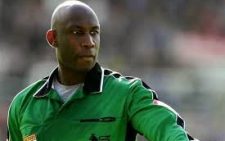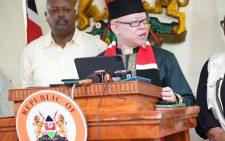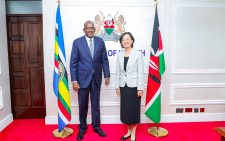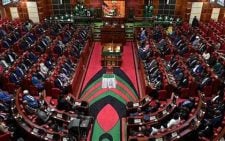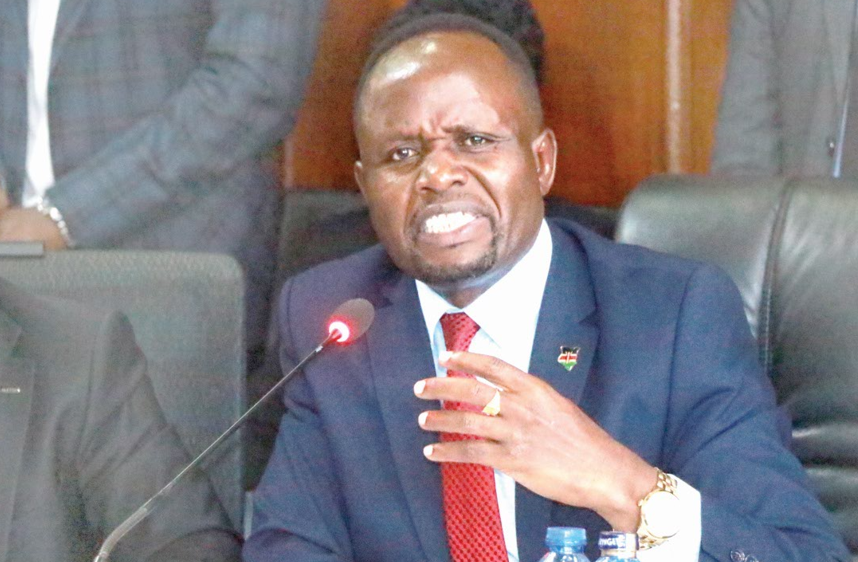Trouble for car inspection firms in forgery probe
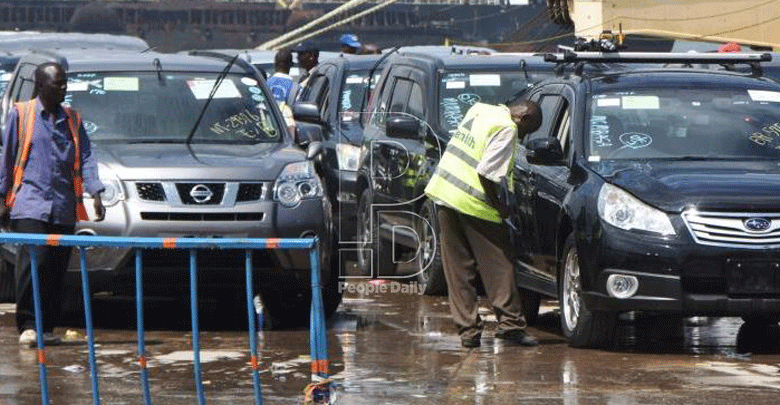
Two companies that used falsified documents to win a Sh1.5 billion tender to offer inspection services for used motor vehicles and spare parts risk being blacklisted from doing business in the country.
The move comes after four government agencies separately concluded the documents used to bid for the controversial pre-export verification inspection of conformity (Pvoc) were forged.
They are National Assembly’s Public Investment Committee (PIC), the Public Procurement Regulatory Authority (PPRA), the Office of the Auditor General and the Directorate of Criminal Investigations (DCI).
The tender was floated by the Kenya Bureau of Standards (Kebs) in 2014.
For instance, the Auditor General, in a special audit of the PVOC programme, recommended that the two companies be barred from doing business in the country.
“Kebs together with relevant state institutions should ensure that these aforementioned companies, M/S Auto Terminal Japan Limited and EAA company Ltd and any future bidding company that provides falsified documentation be prosecuted,” reads the report in part.
The audit shows that ATJ and EAA submitted inaccurate procurement documents to Kebs, giving them undue advantage against competitors such as Nippon Inspection Centre Corporation and Quality Inspection Services Inc Japan (QISJ) who also bid.
Sole director
ATJ only identified Mamoru Fujie as its sole director without disclosing that Tetsuro Shirahama, listed as the owner of the company with 100 per cent shares, is also a director.
Likewise, EAA claimed to have 17 inspection centres in Japan but ended up providing only eight lease agreements.
People Daily has also established that PPRA has now blacklisted EAA.
“In accordance with the powers bestowed upon the Public Procurement Regulatory Board, the respondents [EAA] are hereby debarred for a minimum period of three years, in line with section 41 (4) of the act with effect from June 23, 2021, ” the Board said in ruling over a month ago.
However, the firm immediately dashed to court and obtained conservatory orders, giving it a lifeline until the case is heard and determined.
PPRA acted following a complaint by the Auditor General’s office after its own investigations unravelled the forged documents scheme.
The DCI, which is the latest government agency to uncover the underhand dealings of the two firms, details that the tender documents that saw them awarded the tenders were dogged by rampant forgeries.
DCI George Kinoti opened investigations into ATJ and EAA last year after the Auditor General and PIC found, in separate probes, that the two companies used forged documents.
While enlisting the services of his counterparts at Interpol, DCI Kinoti states that the two firms falsified documents and misrepresented themselves to having global presence in Japan, United Kingdom and United Arabs Emirates, which was one of the key requirements of the tender.
No business relationship
For instance, in Tokyo, Japan, detectives stated that while Run Global Company Limited exists, it has never had or been in any business relationship with EAA or signed any lease agreement disputing the one purportedly presented by the former.
Besides, the signature on the lease contract was not signed by Komuro, the director of Kisarazu.
On lease agreement with Mutsui Sokio 023, the company clarified that it lends a part of its vehicle storage space to EAA where it conducts inspection works for vehicles and receives money every month in respect of the arrangement.
“Mutsui Sokio and EAA have not signed an official lease contract or agreement for use of the area,” Interpol wrote back to Kinoti in documents seen by the People Daily on Monday.
A third company, Nippon Express 018, also had a similar explanation with no lease agreement signed but were aware that EAA uses part of the vehicle handling area that the firm lends to other companies for inspection work for vehicles to be exported.
The same script followed with a fourth company, Moji Kuon that said it has never signed a lease contract or agreement with EAA.
On Transfer Ownership Certificate 029 (KLC), Interpol said KLC is an inspection agency for vehicles to be exported where it sends inspection results and photos to EAA and EAA prepares documents for export.
“KLC does not know if the transfer ownership certificate exists and the name of the representative of the Director of KLC given on the certificate that was submitted by EAA to KEBS is different from the actual director’s name,” the letter reads in part.
It adds: “In addition to the above, we have requested for additional information on the tax regime of Japan during the period 2008-2019, with preliminary investigations indicating that EAA submitted falsified receipts and invoices for the purchase of equipment.”
The Interpol detectives also discovered EAA did not have any lease agreements with a firm known as KC Global Links.
This was confirmed by the owner of KC Global Links ltd, one Chris Lukosi
“I, Christopher Lukosi, have nothing to do with these documents but I am worried why my signature is on a copy of this lease, which looks as an edited copy from my former company Serengeti to read East Africa,” Lukosi told Interpol.
Further information received from Interpol Tokyo, indicated that ECL Agency company limited has no official lease agreement with EAA company limited.
Interestingly, similar findings were also noted by the Auditor GeneralFor instance, EAA had said it has a lease agreement with a firm known as ECL Agency Ltd in Osaka, Japan.
No official lease
However, ECL Agency Ltd disowned the EAA leases presented to the special audit team for verification.
“Furthermore, ECL confirmed EAA uses the staff of ECL to perform inspection service for other countries.
These scenarios exacerbated the doubt as to whether M/s. EAA really does inspections by itself or sub-contracts using other service provider’s staff,” the audit report noted.
At Tilbury Port, in London, Interpol detectives visited Clipper House and spoke to five companies with offices at the building.
None of the companies interviewed had ever heard of ATJ before the name was mentioned by the officers.
“There also didn’t appear to be any branding within the building, which stated Auto-Terminal or suggested the company operated from that location,” Interpol says in a letter to the DCI.
Interpol concluded that ATJ does not have any operations at the Essex Port, although it had indicated in its documents it had a presence in Tilbury with offices at Clipper House.
In Abu Dhabi, Interpol also noted the professional license presented to them for clarification was incorrect in respect to EAA.
“In view of the above information and documents attached, we can conclusively point out that the documents submitted by the two companies East Africa Automobile Services Limited (EAA) Company Ltd and Auto Terminal Japan (ATJ) to Kenya Bureau of Standards were forgeries and falsified during the tendering process,” Kinoti says in the letter to the PPRA Director General and copied to Kebs managing director Benard Njiraini.



